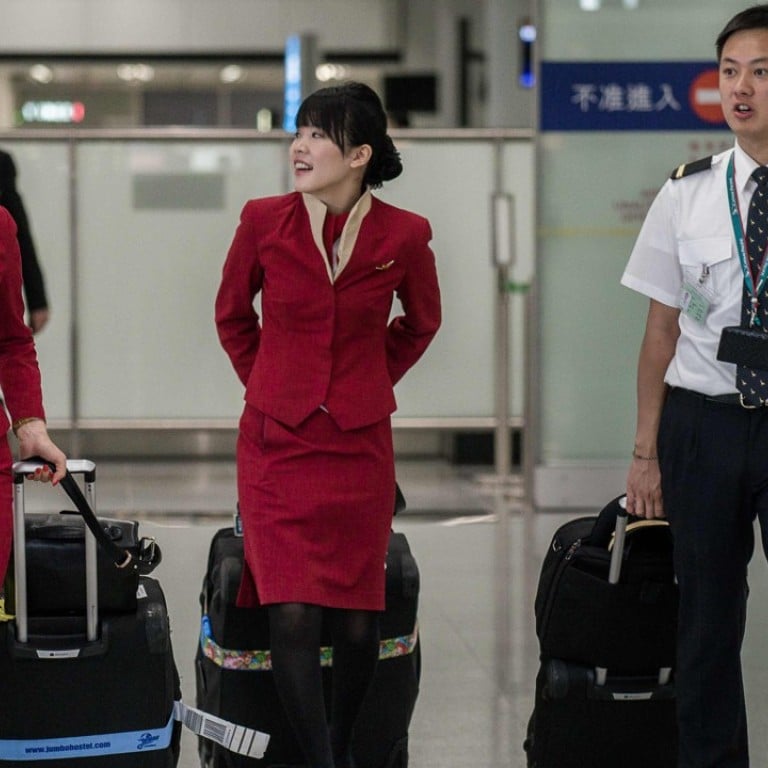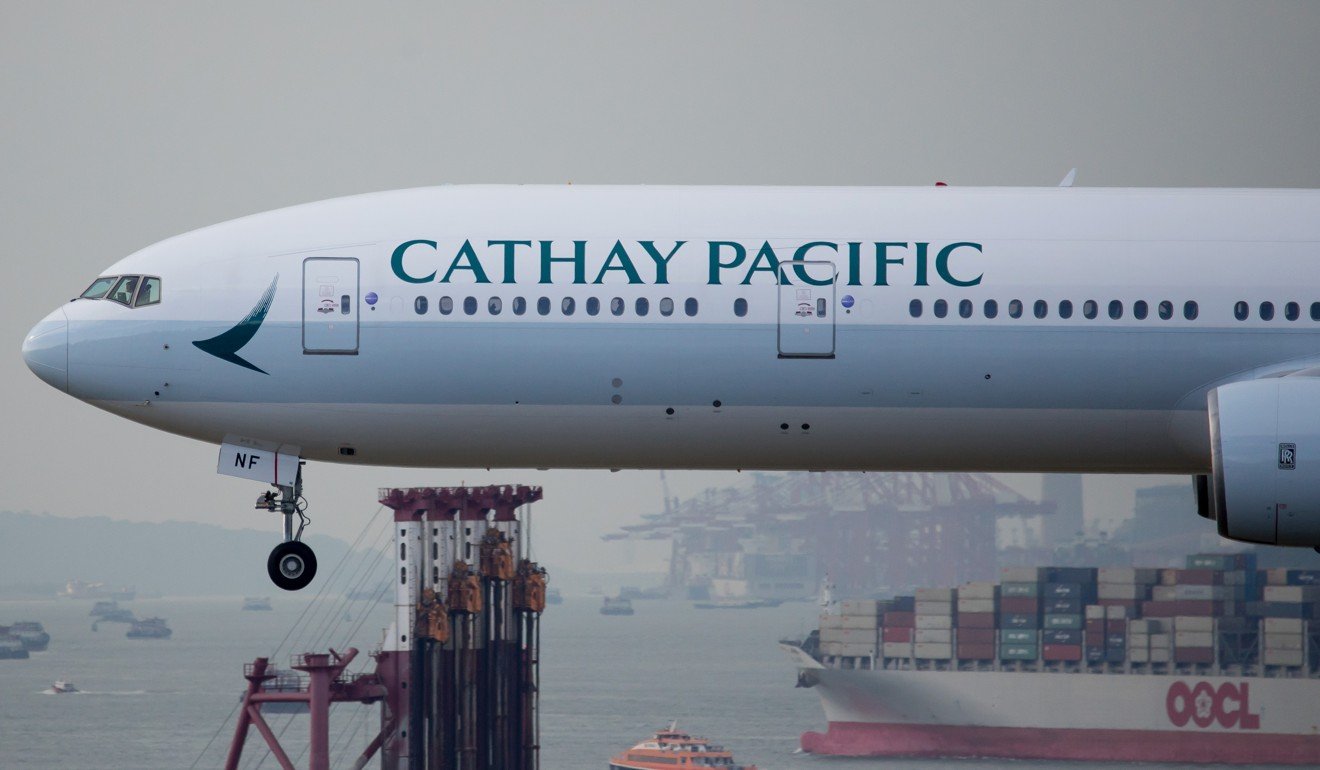
Cathay Pacific agrees to raise retirement age of cabin crew to 60 from 55 after intense lobbying and talks
But deal comes with conditions, such as a cap on the number of such workers and salary cuts
Cathay Pacific Airways has agreed to raise the retirement age of its 10,000-strong cabin crew from 55 to 60, after intense lobbying by a union and talks that stretched almost two years.
In a post on its Facebook page on Friday, the Flight Attendants Union said: “Today is [a] great victory for all workers in Hong Kong, especially cabin crew who have been stereotyped as young and pretty girls.
“In this long-standing fight, even though there have been so many challenges and obstacles within, we take this as a great leap forward in eliminating age discrimination in Hong Kong’s aviation industry.”

Cathay Pacific had all along said it would not back a deal unless it secured cuts such as a reduction in housing allowances, medical benefits and pensions, as a term extension would cost too much.
Today is [a] great victory for all workers in Hong Kong, especially cabin crew who have been stereotyped as young and pretty girls
The airline, one of Asia’s largest international carriers, has lost money for two consecutive years and posted a surprise HK$263 million loss in the first six months of 2018. It signed off on the deal on Thursday.
The union also cautioned this was “not a perfect agreement”.
The revised policy would come into effect on January 1 next year. But there would be a “screening” criteria. Under the plan, no more than 75 per cent of applicants who want to delay their retirement age could stay on, and their salaries would be cut by between 3 and 9 per cent.
According to the agreement, the company would open applications every six months, with applicants subject to interviews.
The union had conducted a ballot on the issue for the first time last summer and members narrowly voted in favour of pursuing the change. Younger flight attendants however were less happy, citing fears of fewer promotion opportunities if older attendants stayed on longer.
A Cathay spokeswoman said the deal would allow the airline “to grow sustainably into the future”, suggesting the arrangement was financially viable.
Cathay Pacific cabin crew back extending retirement age from 55 to 60, internal ballot reveals
Cabin crew at subsidiary Cathay Dragon, as well as rivals Hong Kong Airlines and its sister carrier Hong Kong Express, must retire at 45. Many other Asian airlines, however, allow cabin crew to continue working at the age of 60 or above.
For example, China Airlines, All Nippon Airways and Philippine Airlines have a retirement age of 65 for their flight attendants. The age limit for Japan Airlines, Korean Air, Malaysia Airlines and Thai Airways is 60, and for Singapore Airlines, it is 62.
Cathay Pacific retirement age: should it be down to a vote or matter for EOC to consider?
A pilot union source said the deal for cabin crew has spurred interest for cockpit crews to tackle a similar issue.
Pilots on contracts dating back to 1999 must retire at the age of 55 whereas those on the newer 2008 contract can retire at 65. The Hong Kong Aircrew Officers’ Association said it believed retaining highly experienced pilots amid a growing global pilot shortage would benefit the airline.
Additional reporting by Kanis Leung

